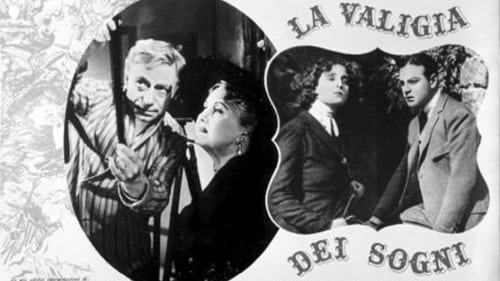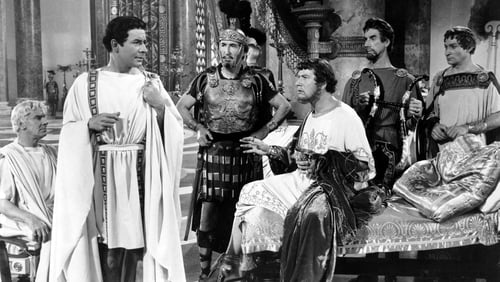Helena Makowska
Nascimento : 1893-03-02, Krivoy Rog, Ukraine
Morte : 1964-08-22
História
Polish silent film star and opera singer.

In this mesmerizing collage of silent Italian melodrama, found-footage filmmaker Peter Delpeut (Lyrical Nitrate) affectionately captures the spirit of the World War One-era cinema diva. In all-but-lost gems such as La donna nuda (1914), and Tigre reale (1916), superstars such as Lyda Borelli and Pina Menichelli portrayed heroines teetering dangerously between defiant indulgence in sexual passion and hysterical remorse at their own cruelties. Delpeut’s inventive celebration of Black Romanticism is both striking and heartbreaking in its composition—a beautifully woven narrative of tempted fate and self-torment, elegantly guided by Loek Dikker’s original score. Zeitgeist Films is proud to present Delpeut’s stunningly experimental work in all its heaving bosomed, luridly tinted glory.

In the movie La valigia dei sogni (The Suitcase of Dreams, Italy, 1953) directed by Luigi Comencini, some sequences from Cenere are inserted. The protagonist is a former silent film actor who has saved old movies of his time from destruction, and uses them to set up recreational performances at schools. After an accidental fire and the risk of prison, he meets a rich producer who helps him to build a film museum.

Older Woman (uncredited)
Após três anos em campanha, o general Marcus Vinicius (Robert Taylor) retorna à Roma e encontra Lygia (Deborah Kerr), por quem se apaixona. Ela é uma cristã e não quer nenhum envolvimento com um guerreiro. Mas, apesar de ter sido criada como romana, Lygia é a filha adotiva de um general aposentado e, teoricamente, uma refém de Roma. Marcus procura o imperador Nero (Peter Ustinov), para que ela lhe seja dada pelos serviços que ele fez. Lygia se ressente, mas de alguma forma se apaixona por Marcus. Enquanto isso, as atrocidades de Nero são cada vez mais ultrajantes e, quando ele queima Roma e culpa os cristãos, Marcus salva Lygia e a família dela. Nero captura todos os cristãos e os atira aos leões mas, no final, Marcus, Lygia e o cristianismo prevalecerão. Na filmagem da obra de Sienkiewicz, foram utilizados cerca de 32 mil figurinos e milhares de figurantes, dentre eles então os 'desconhecidos' Bud Spencer, Sophia Loren (então com 17 anos) e Elizabeth Taylor.


When Professor Horski learns that his wife has published a volume of novellas under his name entitled "Wife" he feels compromised and is angered at her. But as he reads them, he finds that they are great. Also, he reads in them a warning to himself: one should not neglect one's wife for the sake of academic work. The film is considered to be lost.

Thea Holstein

Only a fragmented 52 minutes from the film survive.

Judith
Judith, Count Robert de Bertan's daughter, is on holiday with her friend Louise and her father Marquis Emile de Fers. Meanwhile, banker Charles Delcourt has introduced De Bertan to the owner of a gambling-and-dance hall, Olga Tatschowas. De Bertan, unaware that his banker has lost the capital he gave him to invest at Olga's gambling tables, falls in love with Olga. He marries her, unaware that he is the victim of a plot hatched by Delcourt and Olga, who desires a title and De Bertan's possession.

Two young men move to the city in order to study. One of them gets entangled in a love triangle.

Eve
The singer Cécile Hervey celebrates great achievements, while her sister Elda lives quietly with her aunt Claire on land. Elda is engaged to neighbor Bruno Leveson, but is irresistibly attracted by his brother Raoul, which she will marry. Raoul cheats on her, even before the marriage, with her sister Cecile.

Ophelia
The short film tells the story of Hamlet, who was forced to flee from the treachery of the usurper of the throne who had killed all the relatives of the young. But he will now return to the castle to avenge his father ...

The Princess
The model Fede loves the writer Arte, but he is enmeshed by the beautiful Femmina. Fede takes comfort in the Faun, a mythological creature who becomes animated from the stone sculpted by Arte. The love story with the Faun represents a return to a dreamt wildness impossible by now, for the modern man, to reach and maintain.

A homeless girl gets taken in by a painter.

Il Fiacre n. 13, from the novel of the same title by Xavier Henri Aymon Perrin, Count of Montépin, a highly prolific and much-loved author whose books were vehicles for the depiction of social inequality, narrating stories of love, death, betrayal, blackmail, and redemption. The sweeping narrative of Il Fiacre n. 13 was mutilated by the Italian censor’s suppression of its first part, the most cynical episode, which sets the scene for a scheme discernable in the other three episodes, as the story develops from a sordid murder through plotting and deceit to finally reach a happy ending.

Italian short drama directed by Luigi Maggi.








